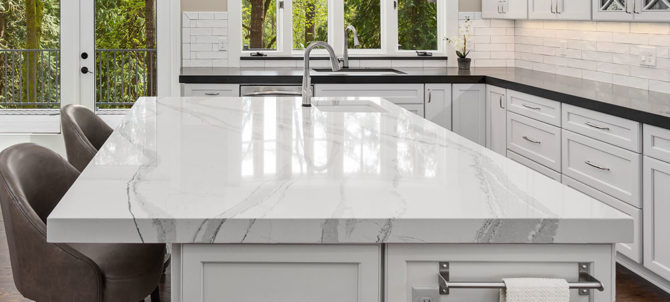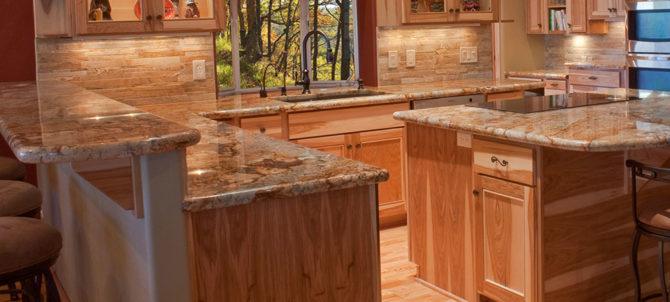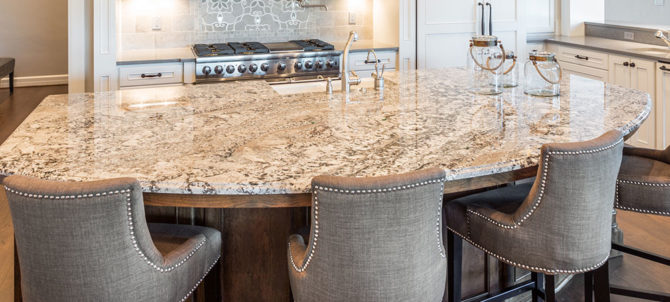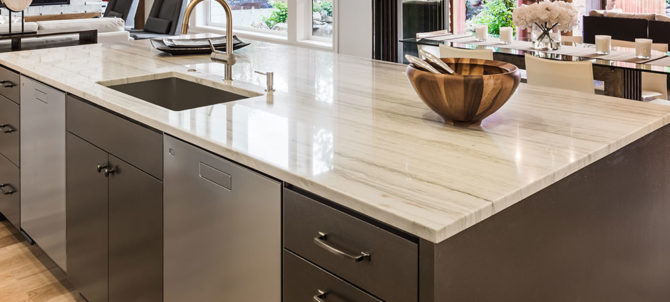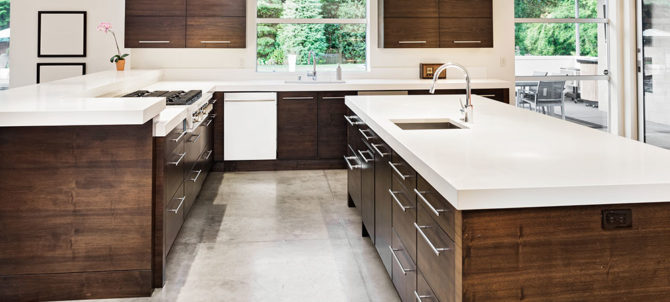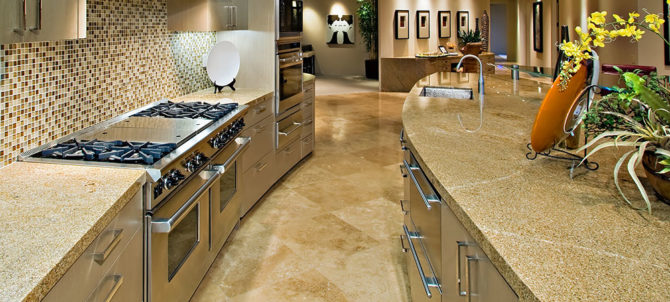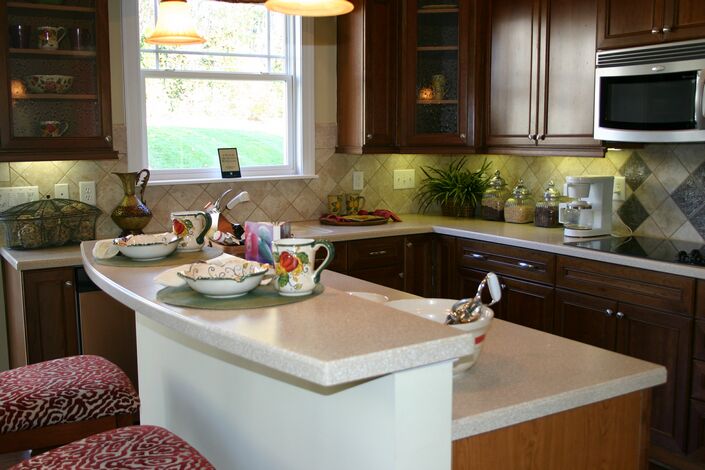
A smooth stone countertop is the main point of a kitchen makeover, surpassing sparkling new gadgets. Natural stones like marble and granite are popular countertop materials, but quartz is an engineered stone that is more durable and frequently less expensive than genuine stone.
To clarify, quartz is also a natural stone. Quartz countertops, however, are made using ground-up quartz particles blended with resins. The result is an engineered stone.
If you have been thinking about buying quartz countertops, you should know that you are on the right track, as there are plenty of perks to getting one. These perks include:
Highly durable: Natural quartz is one of nature’s toughest minerals. It ranks seven (out of ten) on the Mohs Hardness Scale, which is used to identify minerals. While you won’t be scratching all of the countertops to see how hard they are, a higher score on the Mohs scale indicates that the mineral is more resistant to scratches.
Plenty of customization options: Unlike granite and marble worktops, which have restricted options, quartz countertops are available in a wide range of colors and styles. You can choose from a variety of quartz hues and design options to suit your style, such as warm quartz countertops.
Easy to maintain: Another huge advantage of quartz countertops is that they require very little upkeep. Quartz countertops, unlike concrete, granite, and marble counters, do not require frequent sealing and polishing to retain a smooth, easy-to-clean surface.
Quartz is naturally nonporous and does not require sealing or polishing. You can easily clean the surface using warm water and a gentle sponge or cloth, reducing the need for harsh chemical cleaners in the house.
For you to have an easy time keeping your quartz countertops in top shape, you need to be cautious about how you handle them. To help you out, here are some of the things you should and shouldn’t do to the countertops.
Use soap and water for cleaning.
Quartz countertops are extremely easy to keep clean.
For everyday cleaning, simply wipe your quartz countertop with a soft cloth, soap, and water.
Fill a spray bottle with water and a few drops of dish soap, then spritz away.
While soap and water are plenty for routine cleaning, you can also use additional mild cleansers.
A mild household cleaner will get the work done. To avoid stains, thoroughly dry the surface after each cleaning session.
As mentioned, a mild approach is always preferable for quartz countertops. This calls for you to stay clear from bleach, oven cleaners, and abrasive pads or powders.
It’s worth noting that if you have a stain or discoloration on your quartz countertop that requires you to use anything stronger, consult the manufacturer or a professional cleaner for assistance.
Get rid of spills as soon as they happen.
Even though quartz surfaces are stain-resistant, you should make it a habit to wipe away accidents quickly as soon as they happen.
You should note that some substances, such as wine, coffee, tea, or acidic products like vinegar, can cause stains if you don’t clean them up promptly.
Again, while you can use water to clean a quartz countertop, standing water can cause water stains or discoloration over time.
To maintain the countertop’s appearance, wipe up spills as soon as possible. Don’t let them sit on the countertops for too long.
If you are having a problem identifying the spills, bend down and get at eye level with your counters to see whether any dried spills have been hidden. The spills will appear as raised bumps on the surface.
Don’t cut directly on the countertops.
Always use a cutting board when preparing meals on your quartz counters. This is because quartz is scratch-resistant but not scratch-proof, so you should always use a buffer between your counter and a butcher knife or other sharp tools and utensils.
Don’t place hot dishes on the countertops.
The same caution applies to any piping hot pot, pan, or dish that comes straight from the stove or oven: do not place it directly on your quartz countertop.
Quartz, despite its toughness, is not invincible, as it is susceptible to heat damage. When cooking, always set down a trivet or other heat-resistant mat first.
Don’t put permanent markers on or near the countertops
It’s tempting to let the kids work on their school assignments on the kitchen island while you prepare dinner. This is wrong. Do not allow kids to use ink or permanent markers on exposed quartz.
This is because the markers can stick to the surface, making it difficult to remove with anything other than a strong chemical. The kids can use water-based markers. However, if the children are using Sharpies, it is best to cover and protect the tabletop surface.
Don’t seal quartz countertops.
Quartz countertops do not require sealing. Quartz, unlike granite and marble, is not porous by nature. This means you won’t have to seal, polish, or recondition your quartz countertop.
Because quartz is naturally non-absorbent, sealers cannot permeate the surface and instead remain on top of the countertop. This sealant layer will wear off unevenly, making your surfaces appear inconsistently polished. And you don’t want this, do you?
Do sanitize the surfaces
Although the nonporous surface is more sanitary than other natural stone countertop options, such as granite or marble countertops Durham, it is still recommended that you sanitize your worktops on a regular basis.
To sterilize your quartz countertops and kill any bacteria that may be dwelling on the surface, use a 70% isopropyl alcohol cleaner or a Lysol disinfectant spray.
Parting shot
These are some of the things you should and shouldn’t do with quartz countertops. When getting the countertops, ensure that you get them from a reputable store and you have them installed by a professional.
Remember that good care begins with you, so you should be ultra-cautious when handling the counters so that they last for as long as possible.
